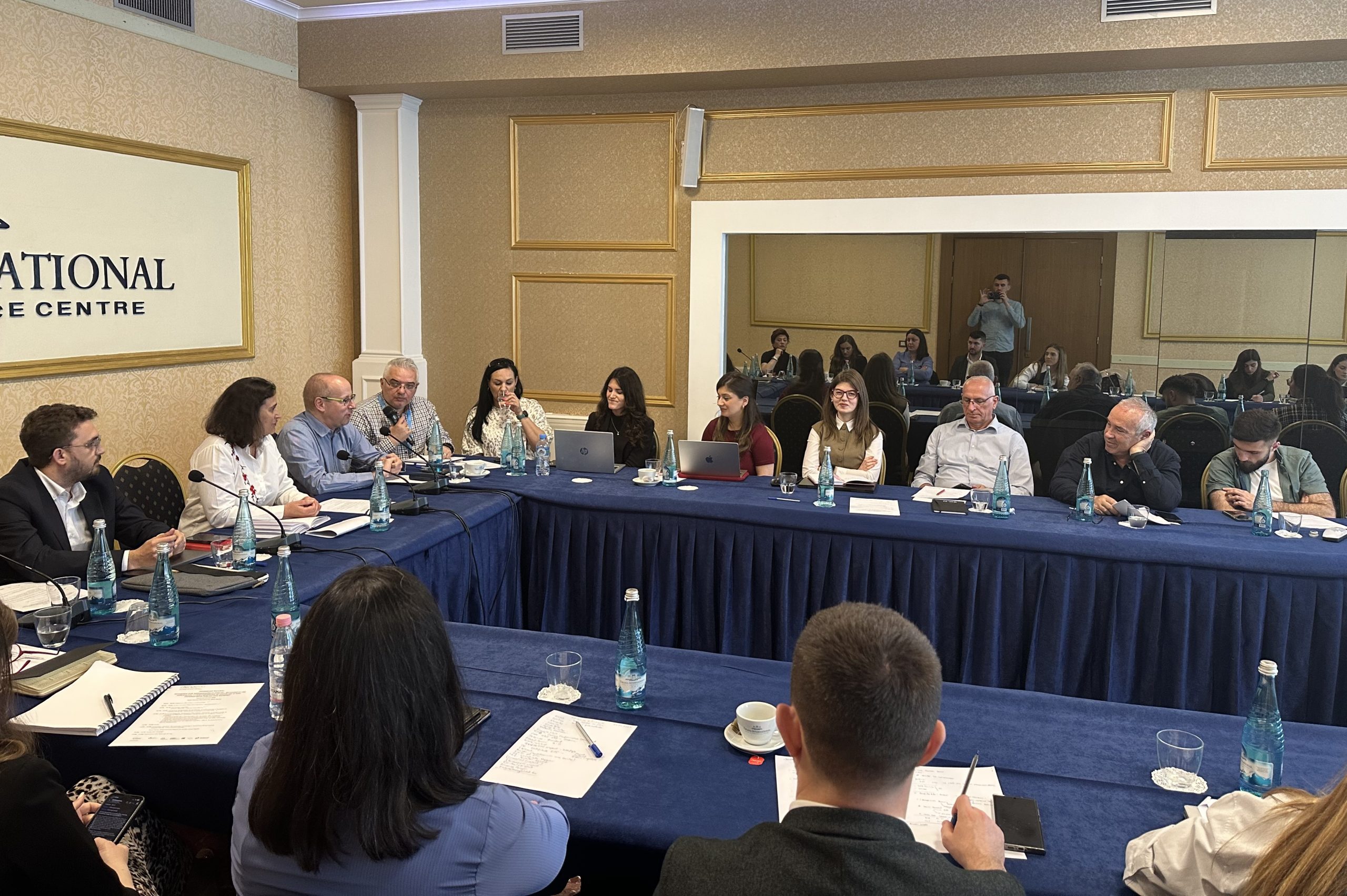
On April 24, 2025, at the Tirana International Hotel was held a regional workshop “Effective Information and Awareness Raising of Citizens on Energy Performance Certificates” organized by Milieukontakt Albania in the framework of the RenovAID project, in cooperation with the Balkan Green Foundation (BGF), the Institute for Development Policy (INDEP), WiseEuropa (Poland), and ENERGIAKLUB (Hungary). RenovAID project is funded by EUKI (the European Climate Initiative), a program of the German Federal Ministry for Economic Affairs and Climate Action (BMWK).
The workshop brought together a wide range of stakeholders, including representatives from ministries and municipalities, civil society organizations, and the private energy sector in Albania and Kosovo, as well as technical partners from Poland and Hungary. The workshop aimed to discuss the challenges and opportunities related to improving energy efficiency in buildings, a topic of fundamental importance for the region’s energy transition.
During the event, thematic presentations were given and in-depth discussions were held, comparing the current realities of Albania and Kosovo regarding energy renovation policies. EU experts shared best practices for Energy Performance Certificates (EPCs), and participants from Albania and Kosovo expressed the specific problems they face, such as a lack of complete legal frameworks, low institutional capacity, limited access to financing, and a low level of citizen awareness.
The presentation of the comparative report on the EPC framework in the EU, Albania, and Kosovo served as a starting point for discussions about current obstacles, priority measures for each national context, and the possibility of creating a harmonized, comprehensive regional approach.
The importance of addressing energy poverty was highlighted, particularly the need to create support measures for vulnerable groups who are often excluded from sustainable renovation and transformation processes.
The workshop concluded with concrete recommendations, emphasizing the need for close cooperation between public, private, and civil society sectors in both countries, as well as continued technical and financial support from international institutions. This event is an important step toward creating sustainable, integrated policies for a more energy-efficient, fairer future for all regional citizens.
